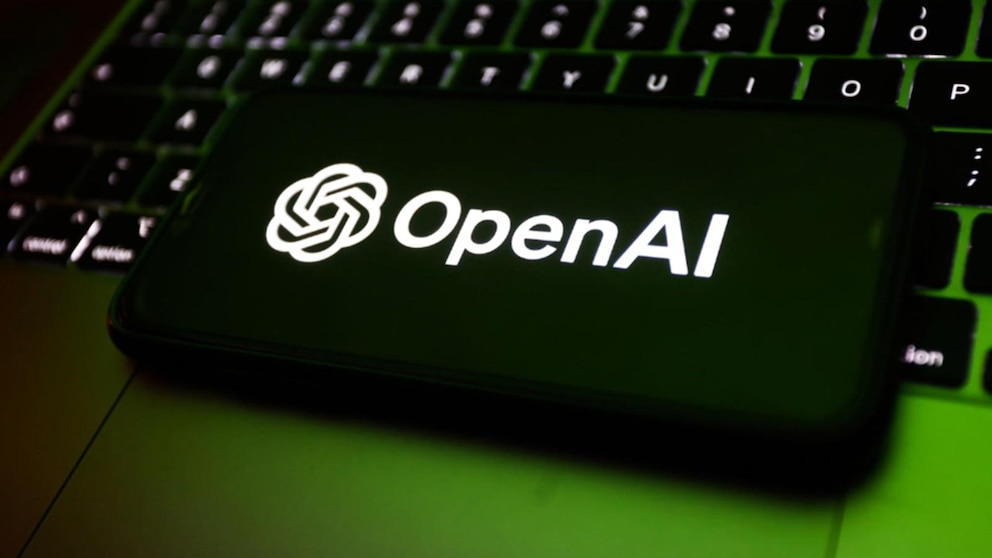ChatGPT And OpenAI: The FTC Investigation And Its Ramifications

Table of Contents
The FTC's Concerns Regarding ChatGPT and OpenAI
The FTC's investigation into OpenAI centers around several key concerns related to ChatGPT's capabilities and OpenAI's practices. These concerns highlight the complexities of regulating rapidly advancing AI technologies and ensuring consumer protection in this evolving landscape.
-
Concerns about the potential for misinformation: ChatGPT's ability to generate human-quality text raises concerns about the potential for creating and disseminating false information. The FTC is likely scrutinizing OpenAI's efforts (or lack thereof) to mitigate the risk of ChatGPT being used to generate misleading content, propaganda, or deepfakes. This includes examining the model's training data and the safeguards implemented to prevent the generation of harmful or deceptive outputs.
-
Data security and privacy violations: The investigation also focuses heavily on OpenAI's data collection practices. The FTC is likely investigating whether OpenAI adequately protects the sensitive personal data used to train ChatGPT and whether its data collection and usage practices comply with existing data privacy laws such as GDPR and CCPA. This involves assessing the security measures employed to prevent data breaches and unauthorized access.
-
Misleading or deceptive practices: The FTC is evaluating whether ChatGPT's outputs are sufficiently transparent to users, ensuring they understand the limitations of the AI and avoid being misled by its responses. This includes investigating whether OpenAI adequately discloses the potential for biases and inaccuracies in the model's outputs.
-
Algorithmic bias and harmful outputs: Concerns about algorithmic bias and the potential for ChatGPT to generate harmful or discriminatory content are also at the forefront. The FTC is likely assessing OpenAI's efforts to identify and mitigate bias in the model's training data and algorithms, and to prevent the generation of outputs that perpetuate harmful stereotypes or discriminatory practices.
Potential Legal Ramifications for OpenAI
The FTC investigation carries significant legal ramifications for OpenAI. The potential consequences could reshape the landscape of AI development and deployment.
-
Substantial financial penalties: If OpenAI is found to have violated consumer protection laws, it could face substantial fines. The amount of these fines would depend on the severity and nature of the violations.
-
Mandatory changes to data practices and algorithmic design: The FTC may mandate significant changes to OpenAI's data handling practices and algorithmic design to ensure compliance with consumer protection regulations. This could involve implementing stricter data security measures, improving transparency around data usage, and modifying the model's algorithms to minimize bias and improve accuracy.
-
Increased regulatory scrutiny: The investigation is likely to lead to increased regulatory scrutiny not only for OpenAI but also for the broader AI industry. This heightened scrutiny will likely prompt other AI developers to proactively address data privacy and ethical considerations in their products.
-
Setting legal precedents: The outcome of the FTC investigation could set important legal precedents regarding AI accountability and transparency, influencing future regulations and legal challenges in the field of artificial intelligence.
Broader Implications for the AI Industry and Data Privacy
The FTC's investigation into OpenAI has far-reaching implications for the AI industry and data privacy, prompting a much-needed global dialogue on responsible AI development.
-
Precedent for AI regulation: The investigation establishes a precedent for future regulation of AI technologies, signaling that authorities are taking a proactive stance on ensuring the ethical and responsible development of AI systems.
-
Emphasis on data protection: It underscores the crucial need for robust data protection measures in the development and deployment of AI systems. Companies developing AI technologies must prioritize data security and privacy to protect consumer rights and comply with relevant regulations.
-
Ethical considerations and responsible AI development: The investigation highlights the growing importance of ethical considerations and responsible AI development practices. This includes incorporating fairness, transparency, and accountability into every stage of the AI lifecycle.
-
Industry standards and best practices: The outcome of the investigation could stimulate the creation of new industry standards and best practices regarding AI transparency and accountability. This could involve developing guidelines for data collection, algorithm design, and the disclosure of potential biases and limitations of AI systems.
-
Global conversation on AI regulation: The investigation is likely to spur further discussions and debates surrounding AI regulation on a global scale, as governments and international organizations seek to establish frameworks for the responsible governance of AI.
The Need for Enhanced Transparency and User Control
The FTC investigation underscores the critical need for enhanced transparency and user control in the development and deployment of AI systems like ChatGPT.
-
User data control: Users need greater control over their data, including the ability to access, correct, and delete their personal information used by AI systems.
-
Clearer information about data processing: Clearer information about how AI systems process and use personal data is crucial, allowing users to make informed decisions about their data privacy.
-
Algorithmic explainability: Developing mechanisms to enhance the explainability of AI algorithms is paramount, enabling users to understand how AI systems arrive at their conclusions and identify potential biases.
-
Focus on user rights and informed consent: Prioritizing user rights and obtaining informed consent before processing personal data are critical components of responsible AI development.
Conclusion
The FTC investigation into ChatGPT and OpenAI is a pivotal moment for the AI industry. The potential legal ramifications extend far beyond OpenAI, impacting the entire sector and sparking a much-needed conversation about data privacy, algorithmic bias, and responsible AI development. The outcome of this investigation will significantly shape future AI regulation and guide the development of more ethical and transparent AI systems. Staying informed about the ChatGPT and OpenAI FTC investigation and its progress is crucial for consumers and companies operating in this rapidly evolving landscape. Understanding these implications is key to navigating the changing regulatory environment and ensuring responsible innovation in artificial intelligence.

Featured Posts
-
 Huizenmarkt Voorspelling Abn Amro Ziet Hogere Prijzen Ondanks Rente
May 22, 2025
Huizenmarkt Voorspelling Abn Amro Ziet Hogere Prijzen Ondanks Rente
May 22, 2025 -
 Are Thames Waters Executive Bonuses Fair A Critical Examination
May 22, 2025
Are Thames Waters Executive Bonuses Fair A Critical Examination
May 22, 2025 -
 Invasive Zebra Mussel Infestation Found On Casper Boat
May 22, 2025
Invasive Zebra Mussel Infestation Found On Casper Boat
May 22, 2025 -
 Ray Epps Sues Fox News For Defamation A Deep Dive Into The January 6th Claims
May 22, 2025
Ray Epps Sues Fox News For Defamation A Deep Dive Into The January 6th Claims
May 22, 2025 -
 Andmam Thlathy Jdyd Lmntkhb Alwlayat Almthdt Lkrt Alqdm
May 22, 2025
Andmam Thlathy Jdyd Lmntkhb Alwlayat Almthdt Lkrt Alqdm
May 22, 2025
Latest Posts
-
 Core Weave Crwv Stock Plunge Understanding Thursdays Decline
May 22, 2025
Core Weave Crwv Stock Plunge Understanding Thursdays Decline
May 22, 2025 -
 Thursdays Rally A Deep Dive Into Core Weave Inc Crwv Stock Performance
May 22, 2025
Thursdays Rally A Deep Dive Into Core Weave Inc Crwv Stock Performance
May 22, 2025 -
 The Truth About Blake Lively And Taylor Swifts Friendship Amidst Recent Lawsuit Reports
May 22, 2025
The Truth About Blake Lively And Taylor Swifts Friendship Amidst Recent Lawsuit Reports
May 22, 2025 -
 Core Weave Crwv Stock Surge Understanding Thursdays Jump
May 22, 2025
Core Weave Crwv Stock Surge Understanding Thursdays Jump
May 22, 2025 -
 Leaked Texts Fuel Blake Lively Taylor Swift Feud Allegations Of Blackmail Surface
May 22, 2025
Leaked Texts Fuel Blake Lively Taylor Swift Feud Allegations Of Blackmail Surface
May 22, 2025
